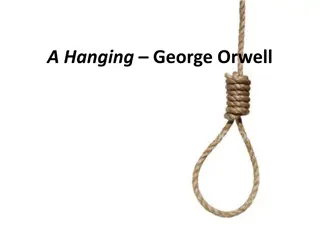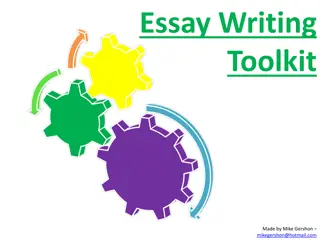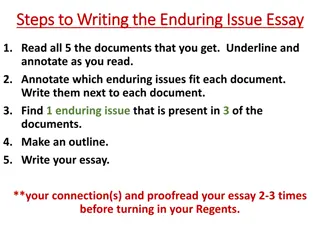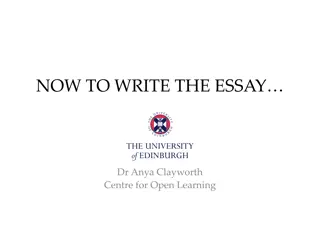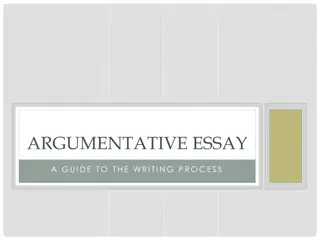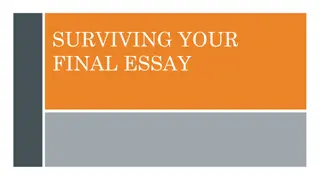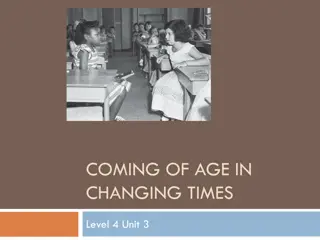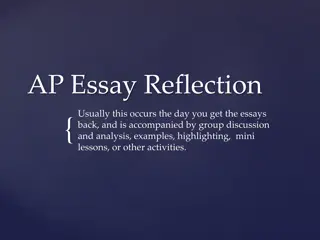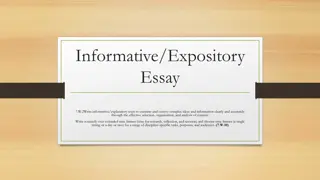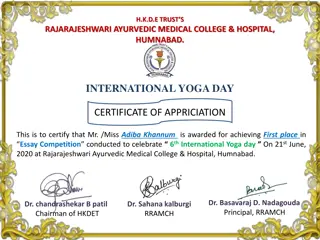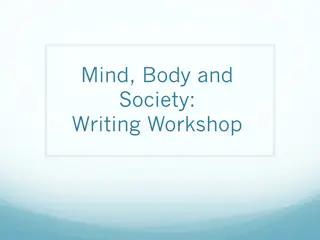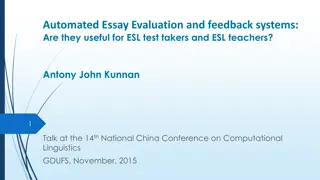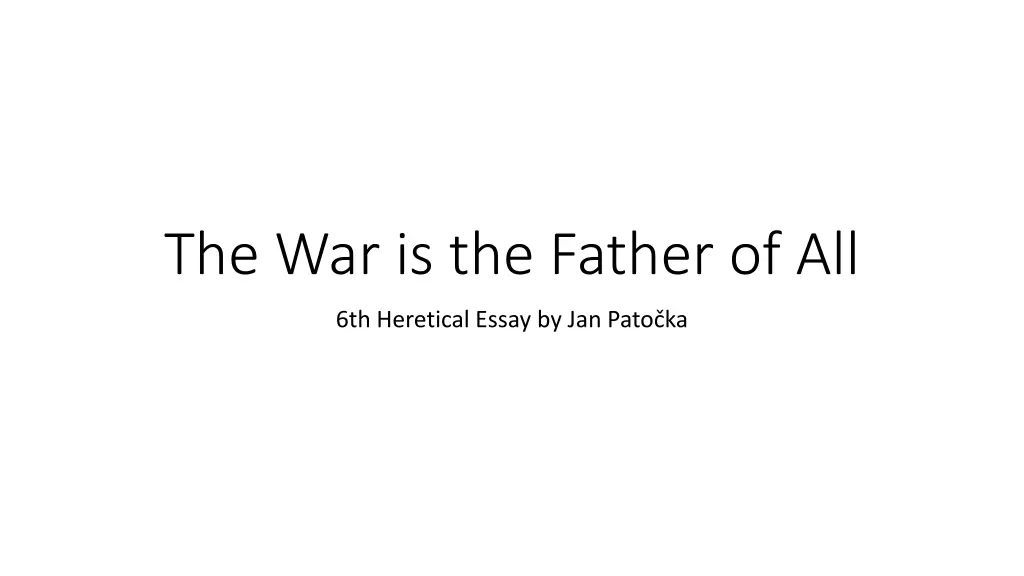
War as the Father of Meaning
Explore the concept of war as the father of all, challenging traditional perspectives and emphasizing its role in shaping modernity. Delve into the contrast between the perspectives of day and night, shedding light on how war unites rather than divides. Analyze the profound implications of conflict, violence, and destruction on human life, redefining the understanding of polemos as essential to existence.
Download Presentation

Please find below an Image/Link to download the presentation.
The content on the website is provided AS IS for your information and personal use only. It may not be sold, licensed, or shared on other websites without obtaining consent from the author. If you encounter any issues during the download, it is possible that the publisher has removed the file from their server.
You are allowed to download the files provided on this website for personal or commercial use, subject to the condition that they are used lawfully. All files are the property of their respective owners.
The content on the website is provided AS IS for your information and personal use only. It may not be sold, licensed, or shared on other websites without obtaining consent from the author.
E N D
Presentation Transcript
The War is the Father of All 6th Heretical Essay by Jan Pato ka
Main idea Main idea We have to overcome the perspective of the day (of the peace) in order to: (i) understand the phenomenon of war as essential to modernity, (ii) to counter the illusions of technical civilization by the solidarity of the shaken
New meaning of Heresy Perspective of day / Perspective of night The idea that war itself might be something that can explain, that itself has the power of bestowing meaning, is an idea foreign to all philosophies of history and so also to all the explanations of war we know. (HE, p. 120)
Perspective of day Perspective of day Those who cannot break free of the rule of peace, of the day, of life in a mode that excludes death and closes its eyes before it, can never free themselves of war. It is a naivet : From the perspective of the day life is, for all individuals, everything, the highest value that exists for them. For the forces of the day, conversely, death does not exist, they function as if there was no death, or, as noted, they plan death impersonally and statistically (129)
Polemos Pato ka seeks to rehabilitate Heraclitus' dictum: "Polemos is the father of all . . ." War is what we have in common. War unites, rather than divides. The dialectic of the light of day and the darkness of night.
Light interpretation "Polemos is at the same time that which constitutes the polis and the primordial insight that makes philosophy possible." // Hannah Arendt s Vita Activa (Human Condition). the shaking of any pregiven meaning = the spirit of the West itself. the spirit of the polis is the spirit of the unity in discord. (2ndEssay)
Dark interpretation What if we interpret polemos as war, as real conflict, with a possible destruction of all that seems to be given for sure? What if we say that Pato ka human life is fundamentally, essentially linked with irruptions of conflict, violence and even destruction? We thus need to look closer at Pato ka s use of the polemos as a concept.
Perspective of night is open in the front Perspective of night is open in the front experience experience Front experience is liberating Freedom from all interests of peace, of life of day: p. 130 It is not a means to an end. Self-surrender: the 3rdmovement of human existence This movement implies a radical self-surrender: self-attainment through self-abandonment.
The experience of the front The experience of the front (Ernst Junger and Teilhard de Chardin) "[T]here might also be a certain prospect of reaching the ground of true peace from the war engendered by peace. The first presupposition is Teilhard's front-line experience, formulated no less sharply though less mystically by Junger: the positive aspect of the front line, the front line not as an enslavement to life but as an immense liberation from precisely such servitude (HE, pp. 133-34) but then an anguishing question arises: Why has this grandiose experience, alone capable of leading humankind out of war into a true peace, not had a decisive effect on the history of the twentieth century, even though humans have been ex-posed to it twice for four years, and were truly touched and transformed thereby? Why has it not unfolded its saving potential? (HE, p. 131)
Total mobilization War is simultaneously the greatest undertaking of industrial civilization, both product and instrument of total mobilization The front, total mobilisation, the machinery of mass-killing = the result of the enlightened reason of modernity, of techno-power. Already at the dawn of modernity, at the time of the wars of religion in the sixteenth and seventeenth centuries, that kind of cruelty and orgiasm emerged. Already then it was the fruit of a disintegration of traditional discipline and demonization of the opponent though never before did the demonic reach its peak precisely in an age of greatest sobriety and rationality. (HE, p. 113-114) See Ernst Junger, Die Totale Mobilmachung, In Simmtliche Werke, Zweite Abteilung, vol. 7, essays 1: Betrachtungen zur Zeit (Stuttgart: Klett-Kotta, 1980). [Ed.]
The meaning of the (self)sacrifice The sacrifice of [those] sacrificed [ob t chto ob tovan ch] (Heretical Essays, p. 130.) is no longer something relative to something else, but is significant solely in itself. those who are forced to live in this region between life and death are assaulted by an absolute freedom, freedom from all the interests of peace, of life, of the day. Life becomes something beyond which there can be nothing. The experience at the front is no longer experienced in terms of their vocations, talents, possibilities, their future ; rather, the highest goal is simply to live (pp. 129 130)
Absolute freedom in the self-surrender This absolute freedom is the understanding that here something has already been achieved, something that is not the means to anything else, a stepping stone to , but rather something above and beyond which there can be nothing. This is the culmination, this self- surrender which can call humans away from their vocations, talents, possibilities, their future. To be capable of that, to be chosen and called for it in a world that uses conflict to mobilize force so that it comes to appear as a totally objectified and objectifying cauldron of energy, also means to overcome force.
Nothing to lose nothing to fear The motives of the day which had evoked the will to war are consumed in the furnace of the front line, if that experience is intense enough not to yield again to the forces of day. Peace transformed into a will to war could objectify and externalize humans as long as they were ruled by the day, by the hope of everydayness, of a profession, of a career, simply possibilities for which they must fear and which they feel threatened. Now, however, comes upheaval, shaking that peace and its planning, its programs and its ideas of progress indifferent to mortality. (p. 130)
Why does the front experience not make any difference? This premonition is already in J nger. Writing after the war, he states: Apart from considerations of mere utility, there ought to be some means of helping [desperate fellows] decently over the intervals of peace so that they would be at hand when wanted. (Ernst J nger, Copse 125: A Chronicle from the Trench Warfare of 1918, (New York: Howard Fertig, Inc., 2003), pp. 198-199.) Peace becomes nothing more than war fought with other means, appealing to the will to live and to have. (133)
The solidarity of the shaken War exposes human person to the destructive forces of techno- power However: a new kind of solidarity can emerge across enemy lines at the heart of the experience at the front the solidarity of the shaken for all their contradiction and conflict. (p. 131)



